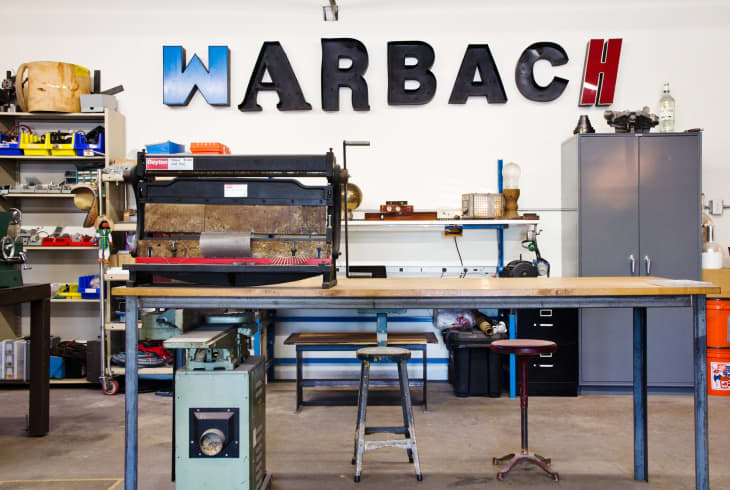The (Free) Tool Renting Option You’re Not Using

Maybe you need a power snake to clear your drains after a heavy rain. Or a weed whacker in early spring. There’s always that one tool you need desperately for one job, but it isn’t anything you’d really want to buy—or worse, store.
If you’re lucky, you know someone who knows someone who might lend you a tool for a weekend. But in our wondrous sharing economy, there’s another solution: tool libraries. And you can get a lot more than just a wrench when you’re stopping by.
The local public library
Regular ol’ “book” libraries are a pretty logical place for tools. As Mary Beth Griggs writes in Smithsonian.com, “Public libraries have an advantage that dedicated tool libraries don’t: space and a lending system already in place.”
Today, the public library on Telegraph Avenue in Oakland, California, has some 5,000-plus tools on loan—from dollies, ladders, and wheelbarrows to jackhammers, belt sanders, and miter saws. You earn your stripes—at first, you can borrow two tools, valued at under $200 each. If you prove yourself responsible, you can check out up to eight, including (squeeee!) power tools. It’s free to check them out, but you’ll pay if you’re late—up to $20/day for the more valuable items.
In addition to the tools, there are DIY videos, books, and tutorials, as well as an informal community of people sharing home and garden tips and tricks. In fact, that community is why the tool library came about: After the Oakland Hills Firestorm of 1991, the Temescal library branch put together a home resources collection to help Oakland residents rebuild. It grew from there.
Old-school tool libraries
What’s happening in Oakland isn’t new or even all that unique. One of the oldest tool libraries in the country, in Grosse Pointe, Michigan, was founded in 1943, when tools were scarce during the war. The Grosse Pointe Rotary Club maintained the library until it was taken over by the local library system.
Similarly, the tool lending library in Berkeley, California, was founded in 1979 and run out of a portable trailer. Their first 500 home and garden tools were bought with a grant and were free for low-income folks. Other residents paid from $.50 to $3. (It’s now free to all residents and housed within the Berkeley Public Library system.)
Other tool libraries, like the West Seattle Tool Library, run as standalone, donation-funded non-profits. Another volunteer-run library about to open in the Chicago area plans to ask for membership fees based on a sliding scale—about $40 per year for a household earning $40,000.
And then there are new-school variations as well, such as the Energy and Sustainability Division Tool Lending Library in Sonoma, California, which loans out really expensive diagnostic equipment to test for energy efficiency, or the Tool Lending Library at the University of Washington CoMotion MakerSpace, which has hand tools alongside state-of-the-art AR/VR equipment.
The Library of Things
One of the most exciting advances in tool lending is thanks to a platform called myTurn, co-founded by Gene Homicki. He also co-founded the West Seattle Tool Library—so he knows of what he speaks. Since 2013, myTurn has helped people with the logistics of tracking products for lending or sharing, fostering the growth of independent “thing” libraries from Atlanta, Georgia, to Accra, Ghana.
“Having access to that online system is critical,” Steve Graham, founder of a small volunteer-run tool library on Vashon Island, Washington, told the Vashon-Maury Island Beachcomber. “We wouldn’t be able to do this otherwise, due to the cost.”
To date, myTurn backs some 400 public Libraries of Things, from tools to musical instruments. And it’s part of a larger ethos called the “circular economy,” where, by sharing, we reduce waste and maximize the utility of the things we already own by up to 10,000 percent. One DeWalt table saw, for instance, has been loaned out 321 times to 211 different people.
At a time when throwing something in the recycling bin just isn’t enough, the Library of Things just makes so much sense. The spirit of sharing (of things as well as knowledge), the savvy use of resources, and the ability to bring community together makes it a win-win-win… win!
Find a tool library near you with this handy map.